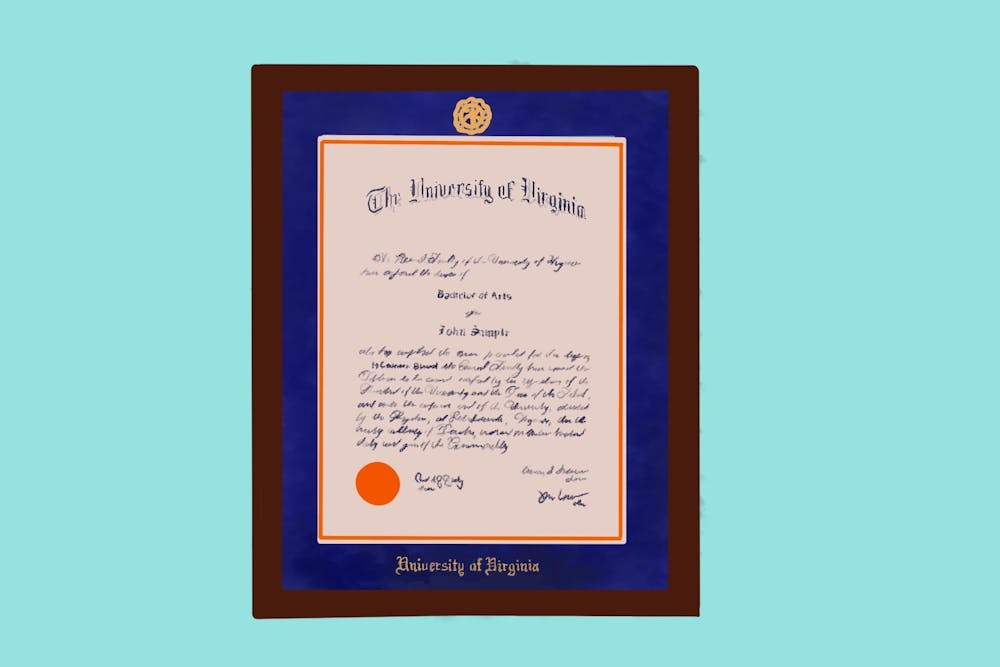The Academic and Student Life Committee of the Board of Visitors heard from Interim Provost Brie Gertler June 5, where she discussed the University’s decennial 2027 reaffirmation of accreditation. The University continues to prepare its submission for accreditation, which includes a focus on undergraduate internship opportunities as its improvement target.
Accreditation is a process in which an independent agency evaluates a college and university to ensure it meets established standards of education and institutional quality. The designation of accreditation marks that a university is providing credible education. It solidifies recognizing degrees as sufficient for other institutions and employers and is a condition for institutions to receive federal financial aid and research funding.
In a statement to The Cavalier Daily, Gertler explained the significance of accreditation, noting the key benefits and purpose of accreditation.
“The accreditation process is designed to ensure that colleges and universities have the infrastructure and resources needed to provide a good quality education. This includes everything from adequate classroom space to properly credentialed faculty,” Gertler said. “Accreditation is necessary for faculty to access many sources of research funding.”
The reaffirmation is overseen by the Southern Association of Colleges and Schools Commission on Colleges, the accrediting body for institutions of higher education across the southeastern United States. SACSCOC grants accreditation to schools as far south as Texas and as far north as Virginia, although different schools seek reaffirmation at different times.
SACSCOC accreditation is based on compliance with 73 standards. These standards address academic rigor, student services, governance, financial sustainability and institutional planning. There are also broader requirements for accreditation such as decentralized authority and university leadership, institutional transparency and academic freedom. Separate SACSCOC committees will perform an off-site and on-site review for colleges seeking reaffirmation, followed by a final review by the SACSCOC Board of Trustees.
One requirement mandates that institutions develop a Quality Enhancement Plan. This requires universities to outline a multi-year initiative that must focus on improving student learning outcomes or success and be grounded in institutional planning. For the upcoming 2027 submission to SACSCOC, the University has chosen to target internship opportunities and experiential learning for undergraduates as its QEP. The 2019 application focused on improvements to writing programs.
Gertler noted that throughout Academic and Student Life Committee meetings this past year, internships continued to be a topic of interest for the QEP.
“Experiential learning and internships were consistently identified as an area of strong interest, and this aligns with our existing work to increase opportunities so that they are available to students across our undergraduate schools,” Gertler said.
The University is to submit its QEP plan to SACSCOC six weeks before its on-site review for accreditation. The plan needs to showcase broad support for the ideas, and steps for how it will determine success and achievement.
The university accreditation process has recently been challenged by current Trump administration demands, such as President Donald Trump’s executive order that would allow for the Department of Education to take action against accrediting agencies who “engage in unlawful discrimination in accreditation-related activity under the guise of ‘diversity, equity, and inclusion’ initiatives.”
The ED has already targeted Columbia University's accreditation, claiming that the university did not properly prevent antisemitism on its campus. Columbia is currently in negotiation with the federal government on how to ensure proper anti-discrimination policies.
Because the government does not determine accreditation status directly, it is unclear whether the Trump administration could revoke accreditation for a university.
Alena Herklotz, director of academic compliance and SACSCOC liaison, further described the agency’s review process during the Academic and Student Life Committee meeting, noting that SACSCOC does not directly influence universities’ political ideology, despite the power they have over accreditation.
“They're agnostic as far as ideology and really just have technical requirements around the running and administration of an institution in higher education,” Herklotz said.
Accrediting agencies, such as SACSCOC, are independent non-governmental agencies that are recognized by the ED, but are not necessarily overseen by any governmental authority. No specific universities accredited by SACSCOC have seen pressure from the ED or the Trump administration to have their accreditation pulled. A call on behalf of a governmental agency to pull a university’s accreditation would not necessarily lead to an accrediting agency not reaffirming that university’s accreditation.
Despite recent government actions, the Academic and Student Life Committee is not concerned with the strength of its 2027 submission to SACSCOC.
“I am confident that our 2027 submission to SACSCOC will demonstrate that we are in compliance with the standards required for reaffirming accreditation,” Gertler said.







